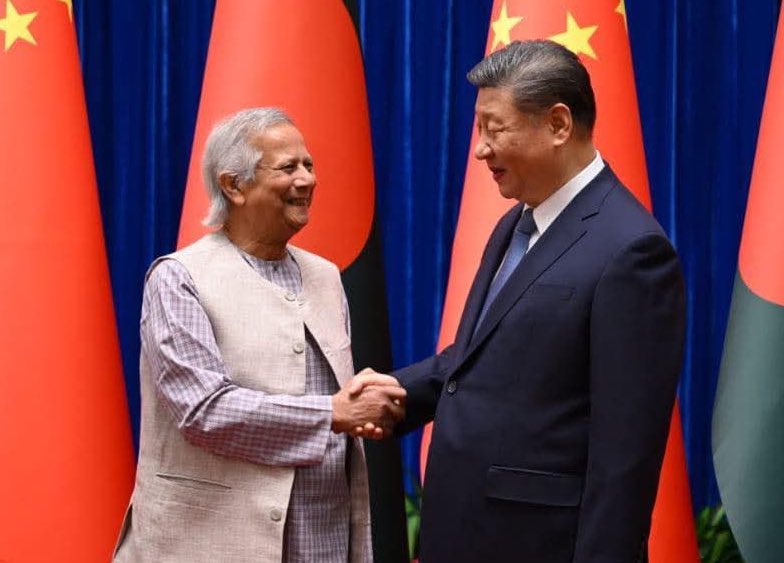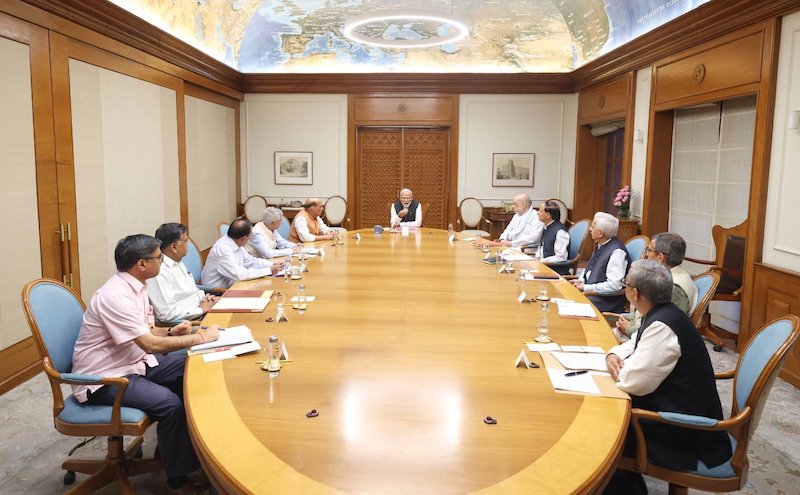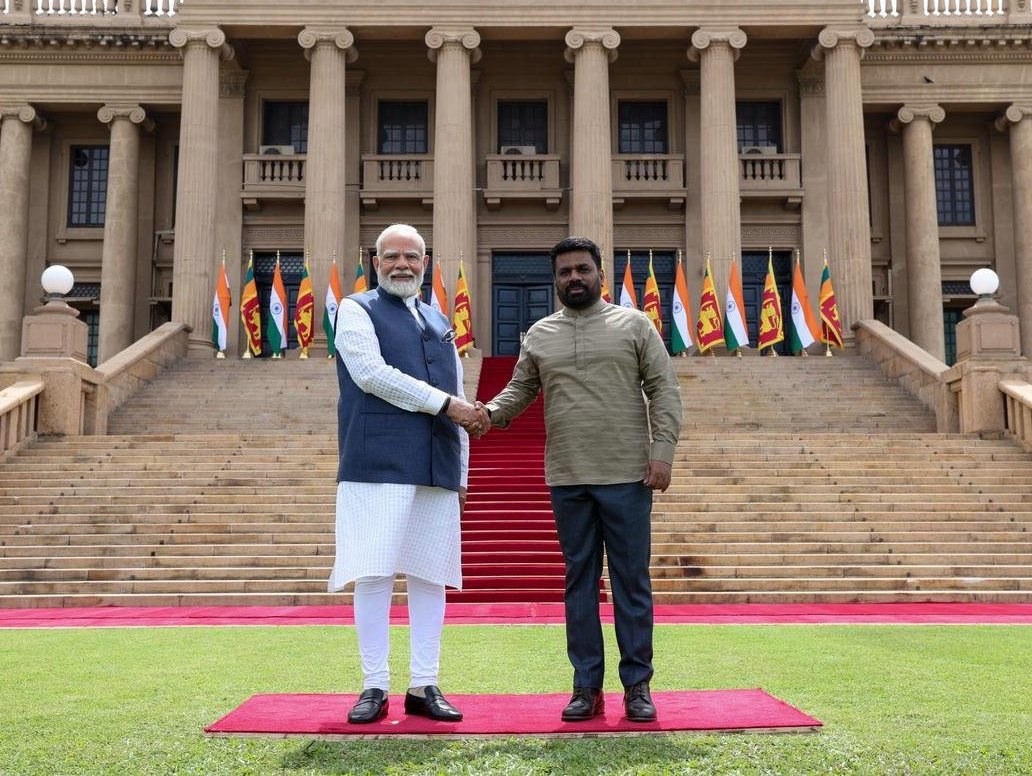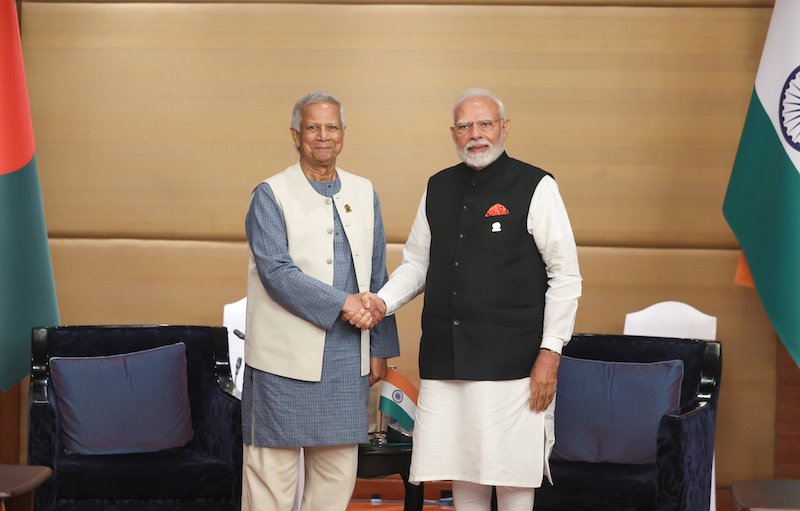 Muhammad Yunus (L) with the Chinese president, X Jinping, in Beijing. (Photo: X/Kanthan2030)
Muhammad Yunus (L) with the Chinese president, X Jinping, in Beijing. (Photo: X/Kanthan2030)
New Delhi: Bangladesh’s interim government chief advisor, Professor Muhammad Yunus, has stirred a diplomatic row with India following remarks made during his recent visit to China. Yunus described India’s northeastern region as "landlocked" and positioned Bangladesh as the “guardian of the ocean” for the area, suggesting that Dhaka could serve as a gateway for Chinese economic expansion in South Asia. These comments have drawn sharp criticism from Indian political leaders, particularly from the northeastern states.
Yunus’s Remarks in China
During his four-day visit to China (March 26–29), Yunus addressed Chinese officials, stating that India’s northeastern states, collectively known as the “Seven Sisters”, lack direct access to the ocean. He emphasized Bangladesh’s strategic maritime position, saying, “We are the only guardian of the ocean for all this region. This opens up huge possibilities. This could be an extension of the Chinese economy – build things, produce things, market things, bring things to China, bring it out to the whole rest of the world.”
Yunus also framed Bangladesh as a critical partner for China in expanding its economic and strategic influence in South Asia. His remarks coincided with several agreements signed between Dhaka and Beijing during the visit, including $2.1 billion in financial commitments from China. This marked a significant shift in Bangladesh’s foreign policy orientation, raising concerns about its growing alignment with Beijing at a time when India-Bangladesh relations are already strained.
Read also: Bangladesh’s descent into chaos is a looming threat to India’s eastern frontier
India’s Response to Yunus’s Remarks
While the Indian government has not issued an official statement directly addressing Yunus’s remarks, the Ministry of External Affairs has emphasized the importance of regional integrity and cooperation but has refrained from engaging in direct diplomatic exchanges regarding Yunus’s comments.
Condemnation Across Political Spectrum
Yunus’s comments triggered immediate backlash from Indian leaders, particularly those from northeastern states. The Assam chief minister, Himanta Biswa Sarma, led the charge with a length post on X, calling Yunus’s remarks “offensive and strongly condemnable”. Sarma criticized the portrayal of India’s northeastern states as dependent on Bangladesh for ocean access and warned of deeper geopolitical implications. He highlighted India’s vulnerability through the Siliguri Corridor, also called “Chicken’s Neck” – a narrow land passage connecting the northeast to mainland India – and stressed the need for robust infrastructure development to mitigate strategic risks.
The statement made by Md Younis of Bangladesh so called interim Government referring to the seven sister states of Northeast India as landlocked and positioning Bangladesh as their guardian of ocean access, is offensive and strongly condemnable. This remark underscores the…
— Himanta Biswa Sarma (@himantabiswa) April 1, 2025
Tipra Motha chief Pradyot Manikya Debbarma echoed Sarma’s sentiments, urging New Delhi to adopt a more aggressive stance on securing sea access for northeastern states. Debbarma went further, suggesting that India should reconsider its historical decisions regarding territorial arrangements with Bangladesh.
Rather than spending billions on innovative and challenging engineering ideas we might as well break up Bangladesh and have our own access to the sea . The Chittagong hill tracts were always inhabited by indigenous tribes which always wanted to be part of india since 1947 . There… https://t.co/rcjs6msae7
— Pradyot_Tripura (@PradyotManikya) April 1, 2025
Sanjeev Sanyal, member of Prime Minister Narendra Modi’s Economic Advisory Council, also weighed in on social media. He questioned Yunus’s premise and criticized his overtures to China at a time when bilateral relations between India and Bangladesh remain sensitive due to attacks on Hindus in Bangladesh and New Delhi’s asylum offer to ousted former prime minister of the country, Sheikh Hasina.
Interesting that Yunus is making a public appeal to the Chinese on the basis that 7 states in India are land-locked. China is welcome to invest in Bangladesh, but what exactly is the significance of 7 Indian states being landlocked? https://t.co/JHQAdIzI9s
— Sanjeev Sanyal (@sanjeevsanyal) March 31, 2025
Geopolitical Implications
Yunus’s remarks have added complexity to India-Bangladesh relations, which are already under strain due to shifting alliances in South Asia. Bangladesh appears to be recalibrating its foreign policy by strengthening ties with both China and Pakistan. During his visit, Yunus described China as an “important friend” and expressed optimism about deepening bilateral cooperation. Meanwhile, Dhaka is preparing for high-level diplomatic exchanges with Islamabad later this month – the first such engagement in over a decade.
Read also: Bangladesh’s shifting posture has strategic implications for regional stability
India views these developments with concern, particularly given China’s growing presence in South Asia through initiatives like the Belt and Road Initiative (BRI). The northeastern region of India is strategically significant but economically underdeveloped due to its geographic isolation. While New Delhi has worked closely with Dhaka in recent years to improve connectivity through transit agreements and infrastructure projects, Yunus’s comments suggest a potential pivot away from collaboration toward competition.
Geopolitical observers say Yunus’s remarks highlighted underlying tensions in regional geopolitics. By framing Bangladesh as a maritime gateway for India’s northeastern states and inviting Chinese economic expansion into South Asia, Yunus has challenged India’s strategic position while complicating bilateral ties further. Indian leaders have responded with strong condemnation and calls for enhanced infrastructure development in the northeast to reduce dependence on external actors like Bangladesh.
As Dhaka deepens its ties with Beijing and Islamabad, New Delhi faces mounting pressure to strengthen its foothold in the region while navigating an increasingly complex geopolitical landscape. The controversy underscores the importance of balancing regional cooperation with national security priorities in South Asia.










